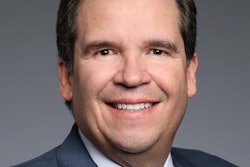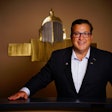
The Federation of Associations of Schools of the Health Professions (FASHP) is declaring the low number of men of color entering healthcare professions -- including dentistry -- a "national crisis."
The federation released a consensus statement on May 1. FASHP calls on local and national educational, healthcare, governmental, and community leaders "to raise awareness regarding this critical issue and to identify barriers and provide resources to dramatically increase the number of men of color graduating from the health professions."
The affected healthcare fields include dentistry, pharmacy, veterinary medicine, and social work, according to FASHP. In the dental field, of 6,665 2021 U.S. dental school graduates, 3,223 (48.4%) were men. Of those, 263 were Hispanic/Latino, 147 were Black/African American, 18 were American Indian/Alaska Native, and three were Native Hawaiian or Pacific Islander, according to a report from the ADA Health Policy Institute.
Of 21,051 U.S. medical school graduates in 2021-2022, 10,268 (48.8%) were men according to a report released by the Association of American Medical Colleges (AAMC). Of those, 664 were Hispanic/Latino, 565 were Black/African American, 13 were American Indian/Alaska Native, and nine were Native Hawaiian or Pacific Islander.
"The low numbers of historically underrepresented men of color health care providers affect not only communities of color but the entire nation’s well-being," FASHP said in its consensus statement. "This lack of diversity has significant consequences for public health, education, economic stability and the availability and quality of health care treatment for all U.S. communities."
FASHP is creating a coalition to address the problem through initiatives that include the AAMC’s Action Collaborative for Black Men in Medicine and the Summer Health Professions Education Program, which is jointly administered by the American Dental Education Association and the AAMC and is supported by the Robert Wood Johnson Foundation, according to FASHP.
"The development of a diverse healthcare workforce is a critical goal for all FASHP member associations,” Dawn Mancuso, president of FASHP in the statement. “Our patients deserve the best care we can provide, and that requires a concerted, broader effort to motivate attention and activate solutions.”



















